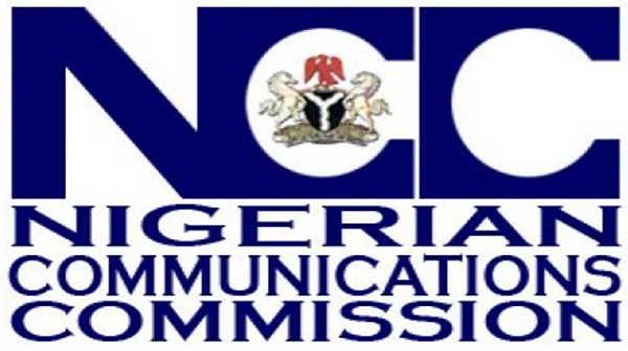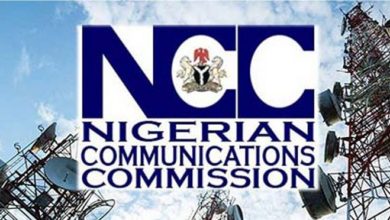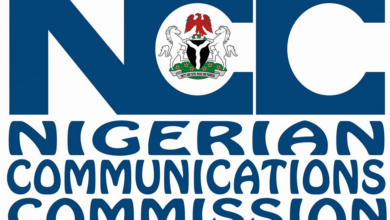100% Of SIM Cards Used In Nigeria Are Locally Manufactured – NCC

The Nigerian Communications Commission (NCC) has said that all the Subscriber Identification Module (SIM) cards used in Nigeria are now manufactured locally.
A SIM card is an integrated circuit intended to securely store an international mobile subscriber identity number and its related key, which are used to identify and authenticate subscribers on mobile telephone devices.
Babagana Digima, head of New Media and Information Security at the NCC, disclosed this at the two-day training for media executives in Lagos.
The training tagged “Upskilling Media Stakeholders on Trends in Telecommunications,”was aimed at enhancing the understanding of media professionals about current trends and advancements in the telecom sector.
Speaking on local production of SIM cards, Digima said that NCC’s efforts to promote local content and indigenous participation in the telecommunications industry, spearheaded by the Nigeria Office for Development in the Indigenous Telecommunications Sector (NORDIT) is yielding positive results.
He highlighted that until recently, nearly all SIM cards in Nigeria were imported. “Before NORDIT’s intervention, 99% to 100% of SIM cards in Nigeria were imported. We set a goal to reverse this trend within five to six months. Now, 100% of all SIM cards used in Nigeria are manufactured locally, with no importation,” Digima stated.
Digima, who previously headed NORDIT, emphasized the commission’s advocacy efforts to boost Indigenous participation across all sectors of telecoms. He noted that NORDIT has provided grants and incentives to various companies to support industry development.
“For instance, we are currently sponsoring the manufacture of Corrugated Ordinal Duct, which will be the first of its kind in Africa. We also encourage the local production of telecom towers and fibre cables. Coleman Cables, a local manufacturer, has surpassed the only other producer in Egypt in terms of capacity and is continuing to expand,” he said.
The NCC under Sections 1D to F of its Act, is mandated to encourage the participation of indigenous telecom companies.
This national policy for promoting indigenous content in the telecommunications sector led to the establishment of the Nigerian Office for Developing the Indigenous Telecom Sector (NORDIT).
“One of NORDIT’s key areas of impact has been in fostering Indigenous participation,” explained Digima, a representative of the NCC.
Earlier in his opening remark, the Executive Vice Chairman of the NCC, Dr Maida, who was represented by Engr. Abraham Oshadami, Executive Commissioner, Technical Services at NCC, noted that the Nigerian telecom industry has witnessed lots of changes which need to be understood.
“We must ensure that all stakeholders understand how technology is driving our world. The success of the industry depends on how people understand it, and at the end of this training, we want to see more enlightened crops of media partners,” Dr Maida said.
The remarks of the NCC’s CEO set the tone for different speakers who delivered their papers in the course of the two-day training.
Executive Vice Chairman/CEO of Nigerian Communications Commission (NCC), While speaking on the topic ” An Overview of Trends in the Local/International Telecom Ecosystem”, Abraham Oshadami said that over the years, telecom has grown from the analogue to digital with each Generation of technology from 1G to 5G offering throughput.
“It has grown from a few thousand connected lines in 2001 to over 200 million active lines in 2024,” Oshadami said.
He said the establishment of the NCC in 1992 paved the way for the liberalisation of the industry and opened the doors for healthy competition.
Engr Oshadami concluded that “innovation is rapidly reshaping the telecom industry, driving faster connections, more diverse services, and even transforming the way we interact with the world around us. The Telecom landscape will continue to change as technology evolves. The role of media in creating awareness on the significance of Telecoms is critical”.
To Efosa Idehen, Director, Compliance Monitoring and Enforcement at NCC while speaking on the topic “The Role of Compliance and Consumer Protection in Nigeria Telecom Industry”, said the NCC is out to ensure a fair and regulated environment for operators and consumers.
Idehen said: “The telecoms industry in Nigeria is one of the fastest growing and most competitive sectors in the country. However, the industry also faces many challenges, such as poor quality of service, inadequate infrastructure, cybercrime and consumer rights violations. Therefore, the role of compliance and consumer protection is crucial to ensure that the industry operates in a fair, transparent, and accountable manner and that the interests of the consumers are always safeguarded.”
Engr. Abraham Oshadami, Executive Commissioner, Technical Services at NCC,said to avoid conflicts in the industry,the NCC put in place best practices for compliance and consumer protection.
These include effective complaints resolution mechanisms, regular monitoring and audit exercises, collaboration between regulators and operators as well as regular stakeholders’ engagements on telecom activities.
Idehen concluded that NCC is a one-stop-shop that all consumers rely on for Protection, Information & Education [PIE] on telecommunication issues, adding that given that the consumer is king in the telecom industry, consumer satisfaction is therefore key to the sustainability of the market.
“Consumers are to adopt the various complaints management platforms of the Commission so that no one takes advantage of them; compliance in the telecoms industry is not just a regulatory requirement but a commitment to ensuring trust, reliability, and transparency in our telecom ecosystem,” he said.
Ayuba Shuaibu, Director of Policy, Competition and Economic Analysis at NCC, spoke on “Enhancing a Healthy Competition Regime in Telecom”.
He said “Healthy competition means a lot for the growth of the sector by preventing competing firms from colluding to increase prices or reduce quantities of goods and services, or to exclude other firms from the market, prevent firms with a dominant position, or significant market power, from using their market power to exclude competitors from the market, or otherwise reduce competition, facilitates easy market entry and exit for companies, promotes fairness in regulation and promotes increased consumer choice.
“The NCC periodically conducts assessments to determine the level of competition in the industry and develops appropriate regulatory instruments to address identified anti-competitive practices.
“In 2013, the Commission carried out a comprehensive Competition Assessment Study that resulted in the definition of specific market segments and the Determination of Dominance in some of the market segments.
“The NCC has always insisted on Quality of Service and Quality of Experience to protect the consumers”.
He called on the media stakeholders to help raise awareness, hold stakeholders accountable and shape public opinion.
In addition, the Director of Public Affairs at NCC, Reuben Mouka further explained that on the part of the NCC, the Commission has put in place a Computer Security Incident Response Team (CSIRT), which responds to reported incidents from telecommunications industry players, both major and minor, monitors incidents at a national and sectoral level, providing early warning to service providers, disseminates information about threats, risks and incidents, partners with the international network of CSIRTs.
Other responsibilities of CSIRT include maintaining cooperative and collaborative contacts with MDAs and the private sector, supporting the telecommunications industry in developing and implementing measures to ensure the continuity and resiliency of their infrastructure and also performing incident analyses and assisting in process and technical investigations.
Dr. Adedoyin Salami, a Nigerian economist who was a chief economic adviser to President Muhammadu Buhari, a senior fellow and associate professor at the Lagos Business School of the Pan-Atlantic University, spoke extensively on the topic “Technology: Significance on Micro and Macro Economic System”.
He recalled the Year 2000 when Nigeria, the ‘Giant of Africa’ had 800,000 telephone lines, half of which were not working, but today, Nigeria can boast of over 200 million lines.
“From less than 0.5% of total inflation-adjusted economic output in 2001, the latest data shows the sector contributed 14.6% in Q1-24, and sector employment was 343,000 in 2012. The sector has both backward and forward linkage as it serves as an enabler for many other sectors in the economy,” Dr. Salami said.
The economist revealed that out of the 46 sectors Nigeria can boast of, the telecom sector is in the third position, behind Agriculture which is the first and Trading in the second position.
“Telecoms sub-sector continues to outperform the aggregate domestic economy though falling at a rapid pace and since the Pandemic, the sector has been dominantly driven by growth in the economy, the benign role of the substitution effect may be due to the huge barrier to entry. The Telecom sub-sector of the ICT sector continues to outperform the overall economy. Covid-19 pandemic was the major growth catalyst for the telecom sector in the last 3 years.
“The sector continues to record inflation-adjusted output growth faster than the overall economy. In consequence, its importance (share of total output) rising albeit very volatile – seasonality is a volatility factor. The impact of Telecoms has largely been to create opportunities by…Improving efficiency,” he said.
Usman Mamman, Director, Licensing and Authorization while speaking on the topic “New Trends in Licensing and Authorization”, said that the liberalisation of the telecommunications sector and the introduction of new licences have been transformative.
He added ” These reforms have led to a competitive market, improved service quality, and broader access to telecommunications services. The reforms have brought about a competitive market, improved service quality, and broader access to telecommunications services.
“As the Regulator continues to enhance competition, embrace technological advancements and regulatory improvements, the telecommunications sector is poised for further growth and innovation, contributing significantly to the country’s socio-economic development,” he said.
Edoyemi Ogoh, Director, Technical Standards and Network Integrity took the media executives through the topic “Transiting from Quality of Service to Quality of Experience.”
According to Ogoh, Quality of Service (QoS) and Quality of Experience (QoE) are critical concepts in the telecommunications industry.
“While QoS focuses on the technical performance of the network, QoE emphasizes the overall experience from the user’s perspective.
“Transitioning from QoS to QoE is essential to meet the evolving expectations of users in the digital age. This shift incentivizes Service Providers to not only provide reliable services but also ensure high satisfaction and engagement.
“QoE encompasses all aspects of a user’s interaction with the service, including usability, accessibility, and emotional response,” Ogoh said.
The benefits of focusing on Quality of Experience cannot be overemphasized as it improves Consumer Satisfaction and Protection, enhances regulatory credibility and trust, gives room for holistic evaluation of service providers, encourages innovation and quality improvements and aligns with global standards and best practices.
“QoE shifts the focus from just technical metrics to include the end user’s experience with telecoms services. It encompasses all consumer touchpoints,” Ogoh said.
On the expectation of the management of NCC in 2024, Ogoh noted that the regulatory body targets 100 percent enforcement of revised QoS guidelines and at least a 50 percent increase in consumer satisfaction.
Co-host of the training, Frank Aigbogun took on the participants on the topic “Navigating Specialised Reporting: Exploring the Communications & Digital Economy Sector.”
The publisher of BusinessDay newspaper, Frank Aigbokun, said that journalism is never good if it deters investment into a sector. It should always be about a more prosperous economy. We must foster healthy competition and a level playing field.
“Things are not always as they seem. Even conventional wisdom can sometimes be wrong in Nigeria. The telecom sector is too critical for our economy. We have a duty of care to it,” Aigbogun said.
Despite how technical the topic “Optimizing Spectrum Administration in Telecommunications” could be, Engr. Abraham Oshadami, Executive Commissioner of Technical Services at NCC was able to present his lecture in a lucid and listener-friendly way.
According to him, the ITU defined Spectrum management as “the combination of administrative and technical procedures necessary to ensure the efficient operation of radio-communication services without causing harmful interference”.
“Optimizing Spectrum Administration in Telecommunications guarantees efficiency in the management of scarce frequency resource and ensures equitable and fair assignment of the resource for most value use and to the most value users which are essential for stimulating economic growth and social development of our dear nation.”
Mrs. Chizua Whyte, Acting Head of Legal & Regulatory Services spoke on the Dynamics of the Legal and Regulatory Ecosystem in Nigeria’s Telecom Industry.
She said “The ever-evolving legal and regulatory landscape in Nigeria’s communication industry requires players to stay informed, read industry publications and articles, engage in capacity building and utilize resources like the NCC website.
“Despite its complexity, it is my belief that stakeholders now have a better understanding of the key issues, and can conveniently navigate the legal ecosystem of the communication industry.”
source: westernpost.ng




